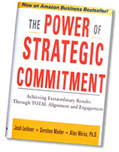For CEO’s, words are actions. This contradicts the old maxim, “Actions speak louder than words.” But the higher you rise in the ranks of management the less you do anything that does not include some form of speech act – in meetings, presentations, one-on-one coaching, site or customer visits and meetings with investors, or even schmoozing with employees. Therefore, the more likely your words are listened to not as separate and disconnected from your actions, but rather as actions themselves – often in the form of declarations, explicit decisions or implicit requests. Ignorance of this phenomenon can be painful if not negligent.
Take Elon Musk as a poster child. Tesla’s May 2, 2018 earnings call was considered a disaster due to CEO Musk’s rambling, rude and combative interactions with analysts and journalists. At one point, he cut off a legitimate question from an analyst, saying: “These questions are so dry–they’re killing me.” The stock dropped over 7% the following day. Musk’s offhanded response? “If people are concerned about volatility, they shouldn’t buy our stock.”
Roll the clock forward to Tesla’s August 1 earnings call and we hear an entirely different Musk; thoughtful, personally apologetic to two of the analysts he had previously scolded, and highly responsive to investor’s questions and concerns.
Said Brad Erickson, KeyBanc Capital Markets analyst: “(Musk) worked to restore some faith and credibility with investors that he can be a plus to the investment narrative, not a minus.” The CEO delivered what Erickson called “maybe the most valuable apology of all time.” To be fair, Tesla’s quarterly results were significantly better than analysts had been expecting. But confidence was also boosted by Musk’s shift in tone and demeanor. Investor response was dramatic – the stock was up $8 billion on the day and had one of its best 3-day runs ever, rising over 20%. And just one week later, Musk’s tweet, “Am considering taking Tesla private at $420; funding secured” sent the stock up another $7 billion. Idle chatter? Certainly not heard as such!
One quick thought experiment to support our “words are action” claim. Imagine one of your direct reports – or a manager several levels below – updates your team on a critical project. A win (or stumble) on this initiative could have meaningful career impact. The presentation finishes…and you half-heartedly comment “thank you” as he and his team exit the room. Let that sink in for a moment; your words – or paucity of words in this case – land as a message you may or may not intend to deliver. The presenter has no way of knowing where you stand, or where he now stands in your eyes. If you are lucky this individual has the internal fortitude to get back to work with no loss of enthusiasm. Unfortunately, this manager may now be worrying about refreshing his resume. Of course this is an absurd scenario; no CEO worth his salt would let a group walk out without some sort of feedback! Yet some executives fail to grasp and own the power of their own voice.
This is not an endorsement for feint praise; in fact just the opposite. Our words matter, unless we cheapen them by being insincere or opaque. People listen hard to what we say, unless we train them to disregard us by being careless, unreliable or disingenuous.
Just like Musk, our tone, demeanor and attention to other’s concerns are ways we are constantly shaping the day-to-day mood, spirit and culture of our organizations. Jack Welch refers to this as being the Chief Meaning Officer; what you pay attention to, advocate for, constructively criticize and intentionally promote all send messages that reverberate throughout your entire organization. Knowing and honoring this means our words will be taken seriously. Forgetting this by being flippant, casual or irresponsible with our words causes people to – rightfully – discount or ignore much of what we say; talk becomes cheap only when we let it.

